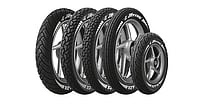With Pratt & Whitney deciding to inspect around 1,200 engines for certain defects, the country's largest airline IndiGo on Wednesday said it is working closely with the engine maker to assess and minimise any impact on its fleet.
IndiGo is the largest customer of the A320 planes and the aircraft are powered by P&W engines. Besides, grounded carrier Go First's A320 neo fleet are having P&W engines.
In mounting woes for the US-based P&W, which is already grappling with supply chain issues, the company has found that a rare condition in powdered metal used to manufacture certain engine parts may reduce the life of those parts.
Against this backdrop, P&W has decided to carry out enhanced inspection of around 200 of its engines powering Airbus planes by September.
"We are in receipt of the information from the OEM Pratt and Whitney (P&W) regarding the outcome of the latest inspection of their engine. We are working closely with P&W to assess and minimise any potential impact to our fleet," IndiGo said in a statement.
OEM refers to Original Equipment Manufacturer.
IndiGo, which operates more than 1,850 flights daily, had a domestic market share of 63.2 per cent in June and has a fleet of more than 300 planes.
An Airbus spokesperson said it is aware of the development.
"Airbus will support customers as they work with P&W to resolve the situaton and minimise the disruption on their own fleets. No impact is expected on ongoing deliveries," the spokesperson said.
The decision about inspection of the P&W engines was made by its parent company RTX while announcing its latest quarterly results on Tuesday.
P&W anticipates that by mid-September, around 200 PW1100 engines will be removed for enhanced inspection, and another 1,000 such engines within the next 9-12 months.
IndiGo has 141 A320 neos and 77 A321 neos as on July 25, as per data available with aircraft tracking website Planespotters.net. The airline also has A320 ceos, ATRs and wet leased B777 aircraft.
Already, some of the planes are on the ground due to P&W engine issues.
Around 27 A320 neos of IndiGo are grounded, according to Planespotters.net.
Regarding P&W engines, RTX President Christopher Calio, during an earnings call on Tuesday, said P&W previously determined that "a rare condition in powdered metal used to manufacture certain engine parts may reduce the life of those parts".
Noting that the current production of powdered metal parts is not impacted, and it will continue to deliver both new engines and new spare parts across all product lines, Calio said as a result of this rare condition in powdered metal, P&W instituted enhanced inspections to be performed at scheduled shop visits.
"However, based on very recent learnings from these inspections, Pratt has now determined that the timing of these shop visits needs to be accelerated. While partner metal parts have been widely used throughout Pratt's product lines for decades, Pratt has bounded the potentially impacted material.
"It has concluded that this condition was present in rare instances in powdered metal produced from approximately Q4 2015 into Q3 2021," Calio said.
He also said the PW1100 engine fleet, which powers the A320neos, will experience the most significant impact due to production volumes during this period.
Further, he said the exact number of engines and the timing of those removals is not yet finalised.
IndiGo and Go First have been facing issues with their P&W engines, which had also resulted in aviation regulator grounding some of the aircraft in the past.
Cash-strapped Go First, which stopped flying on May 3, had blamed P&W engine problems as the main reason for seeking voluntary insolvency resolution process. The dispute between the grounded carrier and the engine maker is going on.

IndiGo begins flight service after 2 years. (Representational image)
IndiGo begins flight service after 2 years. (Representational image)
Published At:
- Previous Story
 Uber, Ola, Rapido Drivers to Go on Nationwide Strike on Feb 7: What Are Their Key Demands
Uber, Ola, Rapido Drivers to Go on Nationwide Strike on Feb 7: What Are Their Key Demands - Next Story
MOST POPULAR
WATCH
MORE FROM THE AUTHOR
×























